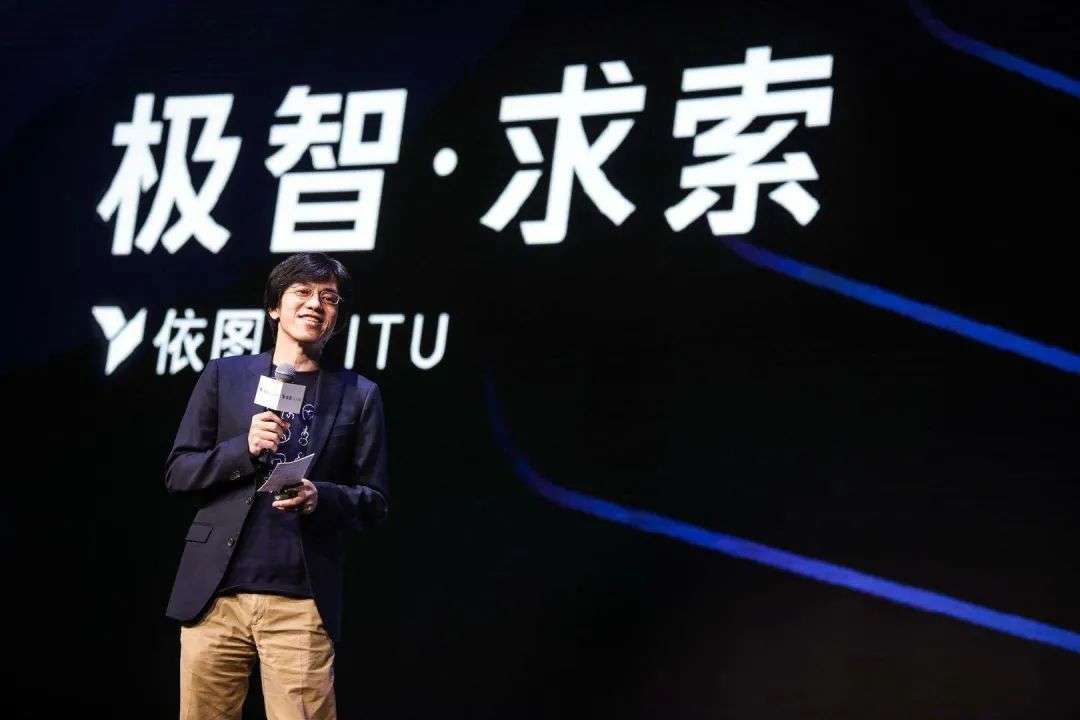Computer vision is approaching its limit, where are the four AI dragons going.
Following Yitu Technology's application for IPO, the AI four dragons officially parted ways.
November 4 evening, the Shanghai Stock Exchange, information display, in accordance with plans Technology Branch board submitted a prospectus. Like No.9 Co., Ltd., Yitu Technology uses CDR (Chinese Depository Receipts) to issue. It is expected to issue 291 million CDRs. It plans to raise 7.505 billion yuan. The funds raised are mainly used for new generation artificial intelligence IP and high-performance SoC Chip project. If the inquiry and deliberation go smoothly, Yitu Technology is expected to become the first listed AI company among the AI Four Dragons, and it will also become another listed AI chip startup after the Cambrian.
In fact, Yitu Technology’s initial positioning or betting on the track is not an AI chip company.
In 2012, Zhu Long, a PhD in statistics from the University of California, Los Angeles, who returned from the United States to focus on computer vision, and Lin Chenxi, a senior expert in Alibaba Cloud Computing, jointly founded YITU Technology. Since 2013, Yitu Technology has received eight rounds of financing. Prospectus shows, according to Figure controlling shareholder Yitu Holdings, Long Zhu Lin Chenxi signed with concerted action, the shares were held YituHoldings 63.316%, 36.684%, the second largest shareholder is the founder of Ma Yunfeng fund, holding 10.8124%.
As soon as he debuted, he had high-quality capital blessings, the best time for the third wave of AI to rise, and the best direction CV (computer vision) in the AI field where he is located. Yitu Technology has quickly become an AI start-up alongside Megvii, SenseTime, and Yuncong, and is known as the AI Four Dragons (or CV Four Dragons).
However, after two years of vigorous advancement in the field of computer vision, limited by the algorithm bottleneck, homogeneity, and difficulty in landing the scene, it began to lack stamina. Since 2018, there have been endless speculations about the profitability of the AI Four Dragons and the strategic route of financing while investing. However, because the AI Four Little Dragons are all start-ups, there is no public financial data disclosure, and they eventually fell apart.
It wasn't until 2019 that Megvii submitted the prospectus to the Hong Kong Stock Exchange, and the outside world really saw the "hidden corner" of the survival of the AI four dragons. Similar to Megvii, Yitu Technology's growth trajectory also includes high R&D investment, high growth, high losses, and "leapfrog" strategic upgrades. But betting on AI chips, Yitu has gone in a different direction from the AI Four Dragons back then.
"From soft to hard", speed up the track change
Unlike last year's rumor that Yitu has achieved balance of payments, losses are its "normal".
The prospectus disclosed that Yitu's revenue doubled from 2017 to the first half of 2020, from RMB 68,718,900 in 2017 to RMB 304 million in 2018, and RMB 717 million in 2019. The losses are also deepening, with losses of 1.168 billion, 1.168 billion, 3.647 billion, and 1.303 billion, respectively, and a total loss of 7.28 billion in three and a half years.
In contrast, Megvii's accumulated losses from 2016 to the first half of 2019 were 9.65 billion. The loss was mainly due to changes in the fair value of Megvii's preferred stock and continued R&D investment. Yitu’s losses also came from high R&D investment and changes in the fair value of preferred stocks.
In three and a half years, Yitu's R&D expenses accounted for more than 90% of its operating income, and it exceeded 100% in 2017 and the first half of 2019. The three-and-a-half years' worth of preferred stock fair value losses totaled 5.083 billion, accounting for 70% of the total loss.
Shen Meng, executive director of Chanson Capital, explained the so-called change in the fair value of preferred shares to Geekpark (ID: geekpark), "The change in fair value of preferred shares is just an accounting treatment, and the impact on the company’s net profit is actually a non-cash Subjects have essentially no impact on the company’s continuing operations and cash flow.” He emphasized that to a large extent, it is a digital game. In order to make business losses look less lonely and conspicuous, accounting losses are put together. , It doesn't look so dazzling.
In other words, whether it is despising or Yitu is still a huge loss.
At the same time, Yitu began to bet heavily on the new track. In 2017, Zhu Long saw the mismatch between complex algorithms and computing power, proposed "algorithms as chips" and invested in AI chip start-up Shanghai Yizhi Electronic Technology. Two years later, YITU cloud customized chip "Quest" came out, especially for video applications.
In the prospectus, Yitu positions itself as an AI company that focuses on artificial intelligence chip technology and algorithm technology, and develops and sells artificial intelligence solutions including artificial intelligence computing hardware and software. That is, it has AI chip design capabilities and AI algorithm capabilities.
Yitu’s competitors in the same industry have also changed. The first category is giant companies such as Google and Huawei; the second category is AI chip design companies such as Nvidia and Cambrian; the third category is Hikvision and iFLYTEK , SenseTime, and Kuang are regarded as smart public services and smart business companies that provide AI industry solutions.
With the addition of the chip track, Yitu has not only completed computer vision, voice, and chip "jumps", but also expanded its benchmark targets from the AI Four Dragons to giant companies such as Google and Nvidia. At the 2019 "Quest" chip conference, Yitu even labeled "No chip beyond NVIDIA is meaningless". Yitu officially "leaves" the AI Four Dragons camp, moving towards differentiation.
Yitu CEO Zhu Long explained at the 2019 search conference|Yitu Technology
Under the "Sanchakou", the "difficult to realize" is difficult to crack
When looking back at the influx of the AI Four Dragons into the computer vision face recognition track in 2013, there were differences in the same business line distribution, but the differences were not obvious.
For example, SenseTime is similar to Megvii. Its business lines are concentrated in the fields of security, mobile phones, and online finance. SenseTime has an autonomous driving business line; Yitu and Yuncong are mainly security and offline ATM finance. One more line of medical business. On the whole, the AI four dragons have the same thing in that the security business accounts for the largest proportion of the total business.
However, the security field is still firmly controlled by the traditional video surveillance giants Hikvision, Dahua Co. , Ltd. , and Univision Technology, which have a market share of nearly 70% to 80%. The AI four dragons can only be in the remaining market space. Get together and compete. In addition, in recent years, traditional video surveillance companies including Hikvision and Univision Technology have also invested a lot of resources and funds to actively deploy AI computer vision technology.
An industry insider who did not want to be named revealed to Geek Park that so far, in addition to price factors in the security field, hardware capabilities are more important. For example, camera sensors involve the upstream and downstream of the industry chain, and it is very difficult to integrate well. The AI Four Dragons can only cut in from software capabilities, and software is difficult to make a profit. Of course, except for certain situations, such as high-precision identification in the financial and medical fields, the threshold is very high. But embarrassingly, the financial and medical landing scenes seem to be many, but they are not yet mature. The high R&D investment is difficult to land and recover the cost.
Even a giant such as Huawei is quite frustrated in the face of the large-scale market established by the security "leading" company Hikvision. At the beginning of this year, Huawei’s security business line was officially renamed "Huawei HoloSens Machine Vision." Except for the expansion of its business to industrial vision, robotics, and ADAS (advanced driver assistance systems), the unwillingness to run out of energy on the Red Sea may be root cause.
Driven by the same reasons, in 2019, the AI Four Dragons will accelerate their differentiated development.
At the beginning of last year, Megvii cut into the robot AIoT field from a single point of computer vision. It not only released the software intelligent robot operating system Hetu, but also released a variety of robot hardware products to deploy industry, warehousing and logistics. Yitu has gone from computer vision, speech technology and natural language processing (NLP) to cloud AI chips. SenseTime and Cloud shifted to the field of smart cities, and SenseTime entered the cloud and edge, and launched the Ark operating system, the urban vision center. Cloud has been upgraded from a human-machine collaborative operating system and solution provider, starting from the industry, combining software and hardware to create a human-machine interface.
The AI Four Little Dragons have moved towards the "three forks" in terms of business strategy and play style.
On the one hand, there is not much growth potential and is approaching the limit of the computer vision face recognition market, on the other hand, the more difficult robot, chip hardware market, and the smart city operating system software market. Whether it is the rumors of the AI Four Little Dragons listing in the past two years or the "transformation" of the business strategy, after all, it is to solve the problem of insufficient corporate cash flow after the capital market returns to calm.
The AI four dragons have fully expanded from single-point business to multi-threaded business. Does it increase market valuation, ease the anxiety of funds, or further deepen the business gap, listing may be the "only solution" to the current dilemma.


No comments:
Post a Comment